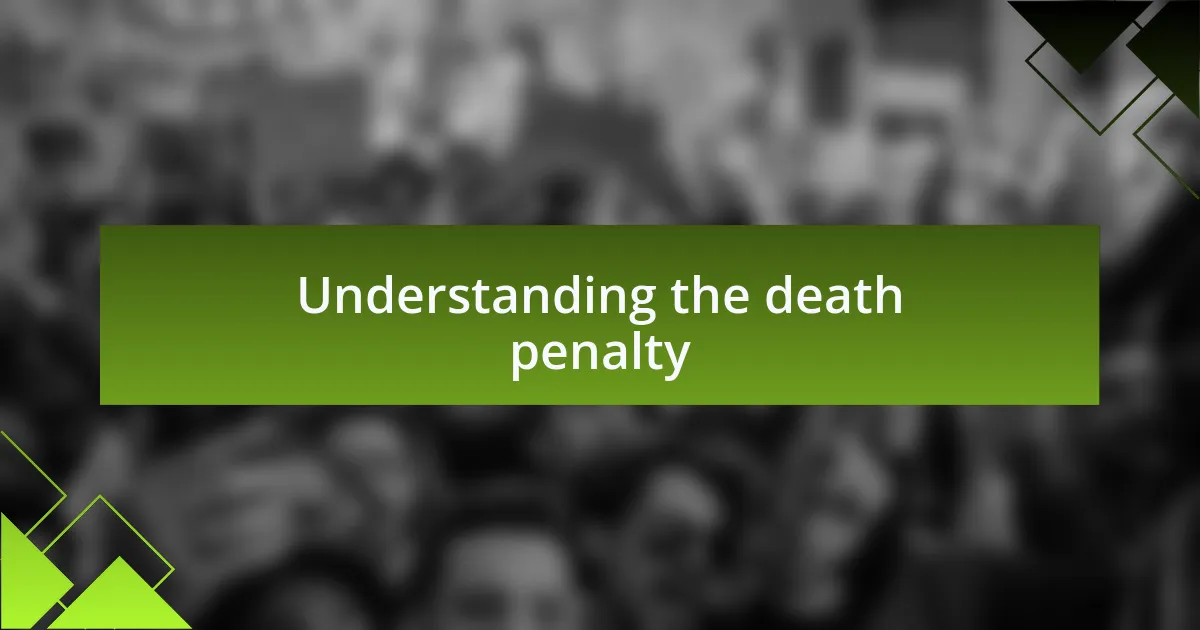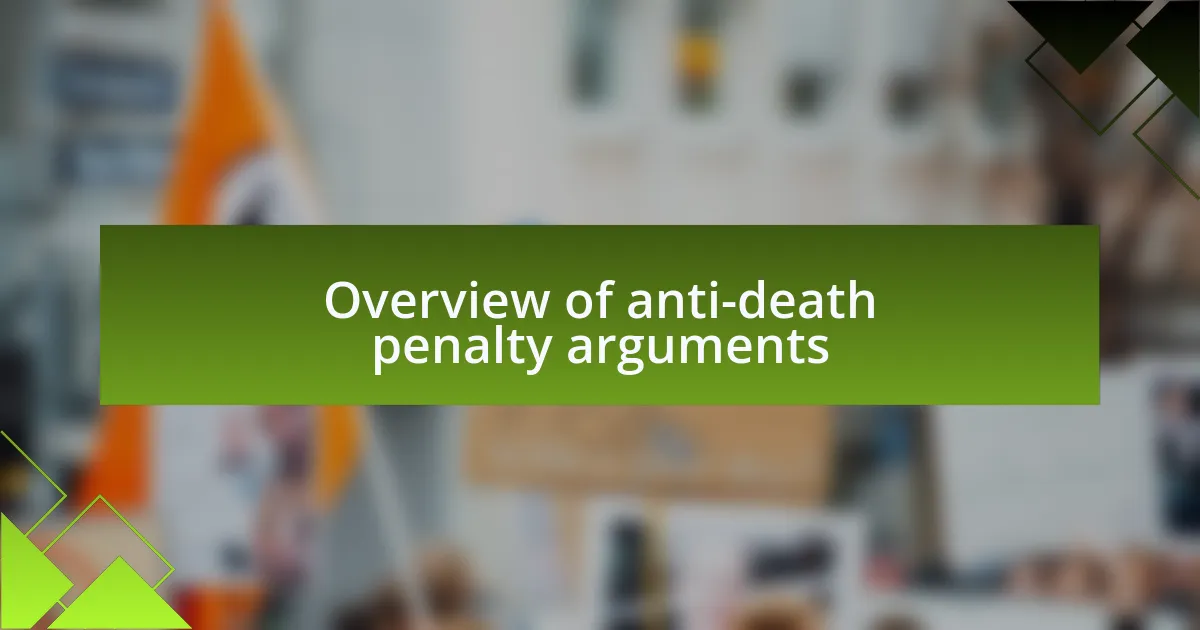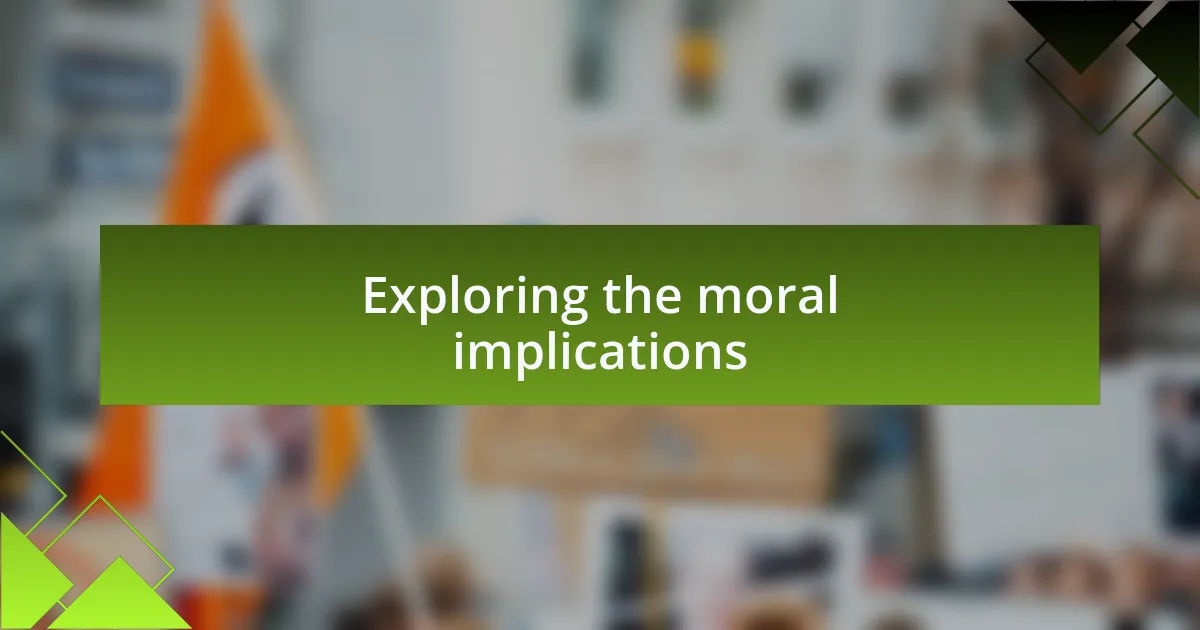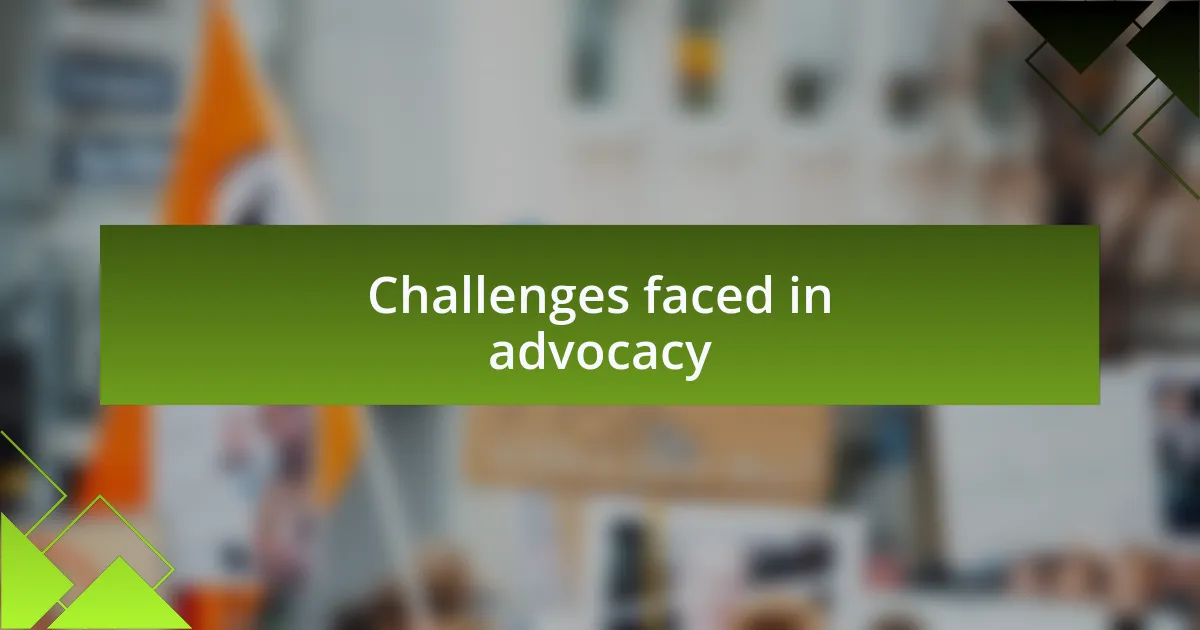Key takeaways:
- The death penalty raises concerns about wrongful convictions, with statistics suggesting that 1 in 25 individuals on death row may be innocent, highlighting the urgent need for reform.
- Financial implications of the death penalty are significant, often costing taxpayers more than life imprisonment, leading to calls for reallocating resources towards prevention and rehabilitation.
- The moral implications of the death penalty include the irreversible nature of capital punishment and biases affecting marginalized communities, prompting questions about justice and fairness.
- Advocacy against the death penalty faces challenges such as entrenched beliefs about deterrence, the emotional toll on advocates, and political reluctance to engage in the debate.

Understanding the death penalty
The death penalty is a complex and deeply controversial issue that evokes strong emotions on all sides. Personally, I remember the first time I encountered a real-life case where a man sat on death row, waiting for his fate to be decided. It made me wonder, how can we justify taking a life when there are so many uncertainties in our justice system?
Many people argue that the death penalty serves as a deterrent to crime. However, I often think back to conversations I’ve had with advocates against capital punishment who pointed out that countries without the death penalty actually experience lower murder rates. How do we reconcile such statistics with our beliefs about justice and punishment?
Understanding the death penalty also means grappling with the potential for wrongful convictions. I once read a haunting statistic that 1 in 25 people on death row may be innocent. Can we really support a system that risks executing an innocent person? The emotional weight of such a possibility weighs heavily on my conscience, stirring a sense of urgency for reform.

Overview of anti-death penalty arguments
While many believe that the death penalty serves justice, I often find myself reflecting on the moral implications of taking a life in such a definitive manner. I recall reading accounts from family members of those wrongfully executed, grappling with the unimaginable pain of losing a loved one to a flawed system. It raises a profound question: how can we reconcile the supposed pursuit of justice with the devastating reality of human error?
Financially, the death penalty is a burden on taxpayers, with its lengthy legal processes often costing far more than life imprisonment. I remember discussing this with a friend who works in law enforcement, and we both agreed that those funds could be better allocated to prevention and rehabilitation programs. Isn’t it worth considering how our resources could be used to foster safer communities rather than sustaining a system that perpetuates violence?
Lastly, there’s the concern about the disproportionate impact the death penalty has on marginalized communities. I’ve seen statistics that indicate how race and socioeconomic status influence death penalty cases, creating a system rife with bias. This ongoing injustice compels me to ask: shouldn’t our legal system strive for equality rather than exacerbate existing inequalities?

Exploring the moral implications
When confronting the moral implications of the death penalty, I often think about the irreversible nature of capital punishment. I remember a case I read about, where new evidence exonerated a man hours before his execution. Imagine the anguish of that moment—knowing a life is about to be taken, only to realize the truth came too late. How can we justify a system that allows such a tragic misstep?
Moreover, the idea that the state can claim the authority to end a life raises ethical dilemmas that challenge my beliefs about justice and mercy. I recall discussing this concept with a close family member who shared a story about a friend wrongfully convicted; the friend’s life was forever altered, even after his eventual release. Shouldn’t justice be focused on rehabilitation and redemption, rather than retribution?
Additionally, there is an unsettling disparity in who receives the death penalty. I’ve encountered stories that highlight this bias, particularly against people of color. It makes me wonder, can any system that enforces such inequality truly be moral? The disproportionate targeting of marginalized individuals leads me to contemplate the very foundation of justice and fairness in our society.

Challenges faced in advocacy
Advocacy against the death penalty comes with substantial hurdles. One major challenge I’ve encountered is the deep-rooted belief among some people that capital punishment effectively deters crime. I remember debating this with a colleague who firmly held that the “eye for an eye” approach was necessary for justice. It’s tough to change minds when emotions and fear are so tightly woven into the fabric of the issue.
Another significant obstacle is the emotional toll on those advocating for change. I’ve personally found that constantly facing stories of injustice and wrongful executions can be overwhelming. It made me question: how do we maintain our resolve in the face of such despair? Yet, I realized that this emotional weight can also inspire solidarity and urgency among advocates, uniting us in a shared mission.
Lastly, navigating the political landscape poses its challenges. Many politicians remain reluctant to address the death penalty due to fear of backlash from constituents. I’ve witnessed firsthand how this reluctance stalls progress. It’s disheartening to think that lives hang in the balance while societal and political dynamics complicate the conversation. Isn’t it troubling that people’s lives can become bargaining chips in political games?